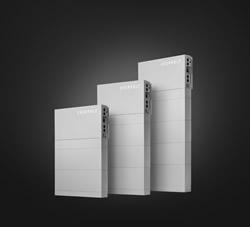New IREC National Scorecard Grades State Shared Renewables Programs
IREC's first-of-its-kind national scorecard provides a valuable tool for policymakers, regulators and other stakeholders to compare the 14 active state programs (distributed across 11 states and the District of Columbia) using a common metric, a simple scholastic grading system (A+ through D-) that reflects a program's strengths and weaknesses.
The Interstate Renewable Energy Council (IREC), an independent organization at the forefront of accelerating U.S. clean energy for 35 years, today released the first National Shared Renewables Scorecard, a free online resource that evaluates state shared renewable energy programs using objective scoring criteria based on best practices for program design. The programs enable multiple customers to share the economic benefits of one renewable energy system via their individual utility bills.
As the shared renewable energy program model has grown in popularity over the past decade, disparities in design elements and inconsistencies in nomenclature made it increasingly challenging to evaluate their merits. IREC's first-of-its-kind national scorecard provides a valuable tool for policymakers, regulators and other stakeholders to compare the 14 active state programs (distributed across 11 states and the District of Columbia) using a common metric, a simple scholastic grading system (A+ through D-) that reflects a program's strengths and weaknesses.
"Expanding consumer access to clean energy continues to emerge as a central theme across the energy policy landscape, and shared renewable energy - particularly shared solar, aka community solar - is an increasingly promising model to scale the economic and environmental benefits of clean energy," according to IREC Regulatory Director Sara Baldwin Auck. "Our aim with the national scorecard is to help scale successful shared renewable energy programs so more Americans in more states can directly benefit from clean energy."
The scorecard evaluates programs according to defined criteria in five categories:
(1) general program details; (2) customers and subscriptions; (3) generation systems; (4) bill credits; and
(5) renewable energy credits. The national scorecard web site offers additional detail on these criteria and definitions of key terms associated with them, including key takeaways.
Currently active programs received these grades:
• Two A grades: Maryland and Washington, DC.
• Six B grades: Colorado, Delaware, Massachusetts (Virtual Net Metering), Minnesota, New Hampshire and New York.
• Five C grades: California (Virtual Net Metering), Connecticut (Virtual Net Metering), Massachusetts (Neighborhood Net Metering), Maine and Vermont.
• One D grade: California (Enhanced Community Renewables component of Green Tariff Shared Renewables).
"IREC's work on shared renewable energy programs in numerous states over the years has taught us that certain design elements are critical to ensuring a robust shared renewable energy market," says Erica McConnell, who represents IREC through the law firm Shute, Mihaly & Weinberger, LLP.
IREC President/CEO Larry Sherwood adds: "The national scorecard, along with IREC's other resources, will help states skip the steep learning curve and more quickly adopt best practices for shared renewable energy programs, while also avoiding pitfalls known to hinder program success."
Shaped by IREC's extensive experience in state shared renewable energy proceedings over the past decade, and guided by input from diverse external stakeholders, the national scorecard criteria are based on best practices highlighted in IREC's Model Rules for Shared Renewable Energy Programs and in alignment with IREC's Guiding Principles for Shared Renewable Energy Programs. IREC's State Shared Renewable Energy Program Catalog offers a detailed overview of the state shared renewables program rules. Used together, the catalog and the scorecard offer valuable insight into the components of these programs and their effectiveness.
Beyond the 14 state programs the scorecard currently grades, additional programs have been enacted via legislation and/or are still under development through regulatory rulemaking. These will be graded once finalized and implemented. To date, 21 state shared renewable energy programs have been enabled across 15 states and the District of Columbia.
A user-friendly DIY Scoring Tool accompanies the national scorecard, allowing policymakers and other stakeholders to use the same criteria to score other programs - including proposed or pending state programs - to evaluate the impact of certain components on the overall program design.
->SPECIAL WEBINAR - On May 19, 2017 at 12 noon ET, IREC Regulatory Director Sara Baldwin Auck and Erica McConnell, special counsel at Shute Mihaly & Weinberger, LLP, attorneys for IREC, host a webinar to learn about the new National Shared Renewables Scorecard and how state programs stack up. Register
________________________________________
About IREC
IREC is an independent national not-for- profit organization that envisions a world powered by clean sustainable energy, where society's interests are valued and protected. IREC galvanizes nationwide adoption of sustainable and efficient energy through fact-based policy leadership, quality workforce development and consumer empowerment. Our work over the past 35 years helps propel unprecedented clean energy growth - building a strong foundation of clean energy state and national best practices, and the supporting quality workforce training standards and programs. www.irecusa.org
Featured Product

